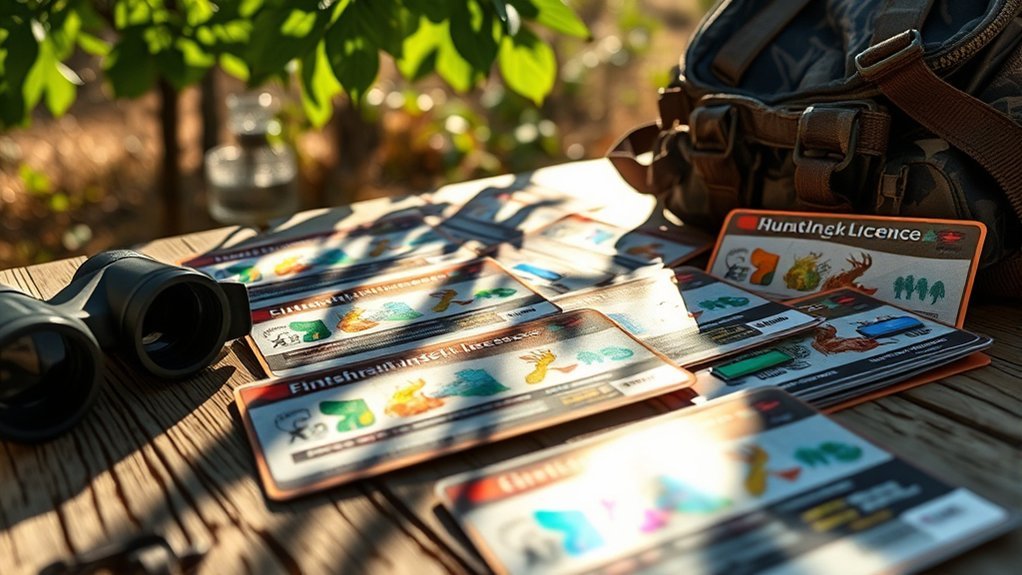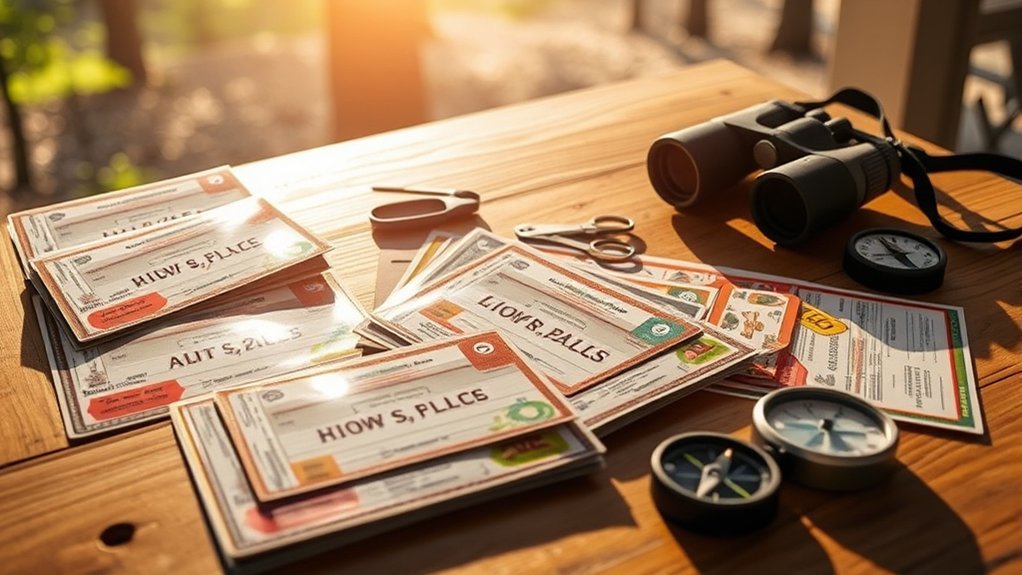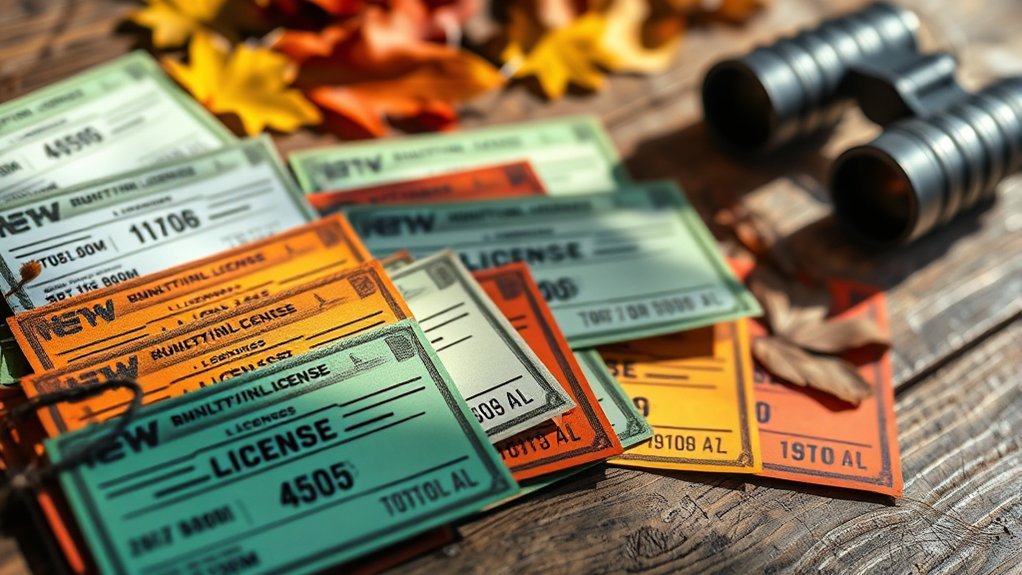When you step into the world of hunting, understanding licenses and tags is essential. These components dictate not only what you can hunt but also how you must comply with state regulations. Without the right permits, your hunting experience can quickly turn illegal and costly. So, what types of licenses and tags should you consider, and how do they affect your hunting plans? Let’s explore the intricacies of these regulations.
Understanding Hunting Licenses

When you consider diving into hunting, understanding hunting licenses becomes essential to guarantee you’re compliant with local laws. Each state has specific regulations governing who can hunt and what licenses are required. It’s vital to research your state’s requirements, as they vary greatly. Generally, you’ll need a basic hunting license, which may include additional endorsements for certain game species. Many states mandate a hunter safety course before issuing a license, ensuring you’re knowledgeable about safe practices and wildlife conservation. Additionally, licenses often come with expiration dates, necessitating timely renewals. Failing to obtain the correct license can result in hefty fines or legal penalties, so keep your documentation organized and up-to-date to enjoy your hunting experience without unexpected complications.
Types of Hunting Tags

Understanding the different types of hunting tags is essential for a successful hunting experience, especially since each tag is specific to certain game species and hunting seasons. Familiarizing yourself with these tags guarantees you comply with regulations and optimize your hunting opportunities.
Understanding hunting tags is crucial for compliance and maximizing your success during hunting seasons.
- General Tags: These allow you to hunt a specific species during designated seasons across a wide area.
- Limited Tags: Issued in smaller quantities, these are for hunting areas with restricted populations, often requiring a draw or lottery.
- Special Tags: These provide access to unique hunting experiences, such as specific times, locations, or methods, often targeting high-demand species.
Knowing these distinctions helps you plan effectively and increases your chances of a successful hunt.
The Importance of Permits

Obtaining the right permits is just as important as securing your hunting tags. Permits guarantee that you’re abiding by local wildlife regulations, which helps maintain sustainable populations and habitats. They often specify the areas where you can hunt, the species you’re allowed to pursue, and the timeframes in which hunting is permitted. By having the appropriate permits, you not only protect wildlife but also safeguard your own legal standing. Violating permit regulations can lead to hefty fines, loss of hunting privileges, or even criminal charges. Consequently, understanding and acquiring the necessary permits is vital for a responsible and enjoyable hunting experience. It’s an essential step that reflects your commitment to ethical hunting practices.
How to Apply for Licenses and Tags
As you prepare for hunting season, knowing how to apply for licenses and tags is essential to guarantee you’re ready for the field. Start by checking your state’s wildlife agency website, as each state has its own application process. Here are three key steps to follow:
- Gather necessary documents: Make sure you have your ID, proof of residency, and any previous hunting certifications.
- Complete the application: Fill out the required forms online or in-person, ensuring all information is accurate.
- Submit and pay fees: Follow submission guidelines and pay the applicable fees, either online or at designated locations.
Regulations and Compliance
After securing your hunting licenses and tags, it’s important to familiarize yourself with the regulations and compliance requirements that govern hunting in your state. Each state has specific rules regarding hunting seasons, allowable methods, and species limits. For example, you may encounter restrictions on the types of firearms or bows you can use. Make certain you’re aware of any reporting requirements for harvested game, as failing to report can lead to penalties.
Additionally, be mindful of local laws that might affect your hunting area, such as land access rules. Staying informed not only helps you avoid legal issues but also promotes sustainable hunting practices. Regularly check your state’s wildlife agency website for updates and changes to regulations to guarantee you’re always compliant.
Conclusion
To sum up, steering through the labyrinth of hunting licenses and tags is essential for every aspiring hunter. Without these permits, you’re not just risking fines; you’re flirting with chaos in the wilderness! By understanding the nuances of licenses and tags, you’re not just playing by the rules—you’re becoming a guardian of ethical hunting practices. So, gear up, stay informed, and let your hunting adventures unfold within the bounds of legality and respect for wildlife management!

